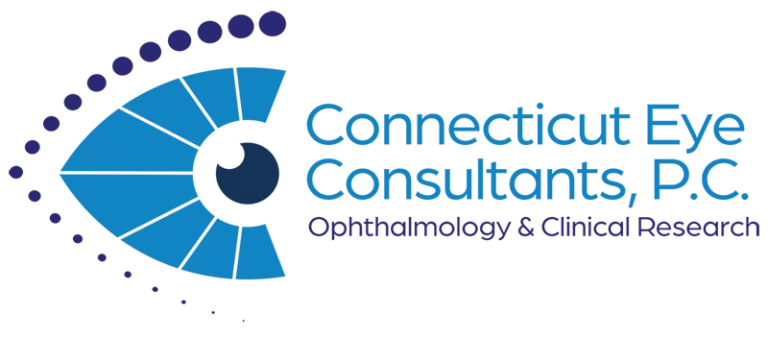HOURS
Mon-Fri: 8:00am – 5:00pm
(Or by Appointment)
Sat-Sun: Closed
Presbyopia
Background
Presbyopia is a common age-related condition that affects the eye’s ability to focus on up close objects. It typically begins to develop in people around their mid-40’s and is caused by a gradual loss of elasticity in the eye’s lens. As a result, tasks like reading can become more difficult without reading glasses or other corrective lenses. Unlike other vision problems that may be caused by changes in the shape of the eye, presbyopia is primarily due to natural aging process. It is not preventable, but it can be managed with various optical aids or drop therapy. Connecticut Eye Consultants is proud to have participated in pivotal clinical trials of all FDA approved medicine and those awaiting review.
Signs and Symptoms
Some symptoms of presbyopia include:
- Difficulty focusing on close objects
- Need for increased lighting
- Holding reading material further away
- Eye strain or fatigue
- Headaches
- Blurriness
Risk Factors
While presbyopia is largely inevitable due to aging, being aware of these symptoms can help you manage your vision changes effectively. Other factors that can influence the onset or severity of presbyopia include:
- Family history of presbyopia
- Certain medical conditions (diabetes, multiple sclerosis)
- Prior eye conditions (cataracts)
- Other refractive errors (myopia, hyperopia)
Diagnosis
Presbyopia is typically diagnosed during a comprehensive eye exam conducted by an optometrist or ophthalmologist. The diagnosis process usually includes:
- Visual acuity test: you’ll read letters on an eye chart at various distances to assess your vision
- Refraction assessment: the doctor uses a phoropter to determine your exact prescription for glasses, which can help identify presbyopia
- Near vision testing: specific tests, such as reading a card at a close distance, help evaluate how well you can see objects up close
- Slit-lamp examination: this may be done to examine the overall health of your eyes and rule out other conditions
Treatment
- Reading glasses
- Bifocals
- Progressive lenses
- Contact lenses
- Surgical options
New Frontier: Drop Therapy
New FDA approved medications can allow for temporary improvement of near vision. These medications all work to constrict the pupil. This helps the eye focus up close while preserving distance vision. These drops are reusable and should be used one to two times per day.
Research participants, doctors, and staff at Connecticut Eye Consultants contributed to these exciting breakthroughs in presbyopia treatment.
Doctors at Connecticut Eye Consultants who can diagnose and treat presbyopia:
- Margaret Marcone
- Crystal Seaforth
- Franc Kolami
- Frank Restivo
For more information, please visit https://www.nei.nih.gov/learn-about-eye-health/eye-conditions-and-diseases/presbyopia


